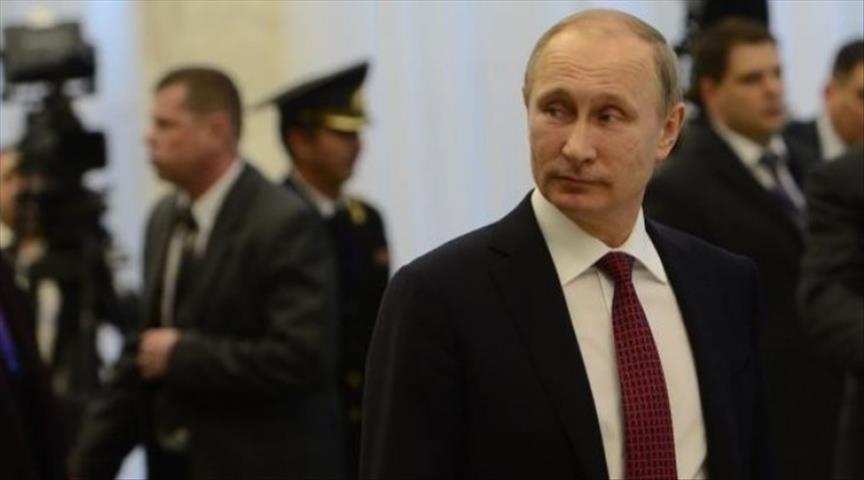Turkmenistan may face Russian pressure if Turkey sells Turkmen gas to Europe, experts said on Monday.
"Turkey fully supports the plans to transport Turkmen natural gas to Europe, both technically and politically," Turkey's energy minister said on Friday in Ashgabat, the capital of Turkmenistan.
"Since such a pipeline through Turkey would reduce European dependence on Russian gas, Turkmenistan would likely come under Russian pressure," said Naser Al-Tamimi, a Middle East energy expert.
According to Tamimi, an easing of Russian-European tension may become a precondition for the trans-Turkish pipeline.
"And don't forget the Chinese have their eyes on this gas supply too. They are already moving on establishing a silk route corridor to TAP into Central Asian resources," Tamimi added.
TAP is the western part of the 3,500 kilometer-long Southern Gas Corridor that will carry natural gas from the Caspian Sea near Azerbaijan to Italy in Europe. The project, which has a planned construction for the beginning of 2016, involves global energy companies - Azerbaijan's SOCAR, Norway's Statoil, British Petroleum, Fluxes, Engages and Apo.
TAP will connect with TANAP on the east of the Greek-Turkish border and will cross to northern Greece, Albania and the Adriatic Sea to connect with the Italian natural gas network at southern Italy, stretching 870 kilometers. The project's initial capacity will be 10 billion cubic meters, bcm, of gas per year, and with the addition of two extra compressor stations, the capacity could double to 20 bcm in the future to make room for additional supplies to come from the Caspian region.
"A definitive movement on this project following the Turkish minister's visit may take time with the easing of regional Russia-Europe tensions, and if it materializes, it will be a great boon for the Turkish economy," Tamimi added.
The EU Commission's intention to provide a European outlet for Turkmen gas has been around for a long time in order to diversify its gas supply and to break the former Soviet Republic's infrastructural dependence on Russia.
The EU is the largest energy importer in the world, importing more than 50 percent of the energy it consumes. Europe imports 24 percent of its gas from Russia, half of which comes through Ukraine at 80 bcm per year.
"Russia was successful in playing a stick and carrot strategy, preventing a legal settlement of the Caspian waters that would have allowed the construction of the Trans Caspian pipeline while offering Turkmenistan a market for its gas," said Marco Giuli, a policy analyst from the Brussels-based European Policy Centre.
Gazprom purchased 50-60 bcm of natural gas from Central Asia since 2008. A crisis occurred in 2009 when Turkmenistan, Uzbekistan and Kazakhstan wanted to raise the gas price, causing a falloff in Gazprom's exports to Europe and a loss in their revenues. Gazprom then started to reduce their natural gas imports from Central Asia and in particular from Turkmenistan.
In 2009 Gazprom imported almost 30 bcm gas from Turkmenistan and Uzbekistan but the import volume dropped to only 16 bcm in 2013. According to Alexander Medvedev, Gazprom's Deputy General Manager in February 2015, Gazprom will cut its imports from Turkmenistan and Uzbekistan by 10 bcm more in 2015 and replace it with Russian gas.
"With Russia steadily reducing its imports from there, Turkmenistan is excessively dependent on its gas exports to China. Now Ashgabat has started looking at Europe again," Giuli said.
"We are still far from a legal settlement on the Caspian (pipeline project). Secondly, if the Turkish Stream comes on stream as scheduled at the planned size, Russia could easily price out the high-cost Caspian gas on Turkish and European markets," he added.
During 2014, the crisis in Ukraine threatened gas supplies to Europe and brought the issue of energy security to the forefront. In response to the crisis, the European Commission adopted the "European Energy Security" which includes diversifying gas imports. However, the outlook for LNG demand in Europe remains uncertain and depends on a number of factors, including the renewal of the transit agreement between Russia and Ukraine and LNG prices in Asia.
"Russia may still seek to make use of its cost advantage to keep competitors out of European markets. Russia and Norway, which together hold more than 50 percent of the market share for gas in Europe, could sell their gas at lower prices while their new competitors such as piped gas from central Asia, including Turkmenistan or U.S. LNG, need to be more than that price to be profitable," said Zubair Iqbal, an expert from Washington-based Middle East Institute.
"In light of the prevailing current situation, especially low oil and gas prices, it is hard to see the arrival of Turkmen gas during this decade. Consequently Turkey's ambition to become a gas hub in the region could take years to materialize," he added.
By Murat Temizer
Anadolu Agency
murat.temizer@aa.com.tr


